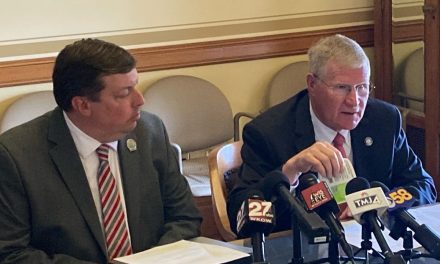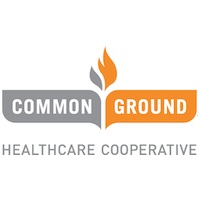
Wisconsin Policy Forum takes deep dive into what Medicaid expansion could mean for state

Wisconsin would see a larger fiscal benefit from expanding Medicaid with Affordable Care Act dollars compared to other non-expansion states, but would likely add fewer people to the program, according to a Wisconsin Policy Forum report released Thursday.
“Whether one embraces or opposes an expansion of Medicaid coverage, the reality is that the bulk of it already has happened in Wisconsin,” the report noted. “The main questions left are how the state pays the ongoing cost of maintaining its costlier partial expansion or whether the state wishes to go somewhat further.”
Wisconsin is one of 10 states that has not expanded Medicaid eligibility to 138 percent of the federal poverty level for adults between 19 and 64. In 2014, then-Gov. Scott Walker and the Legislature modified BadgerCare Plus to cover adults making 100 percent of the federal poverty level, which is where tax subsidies become available for Healthcare.gov plans.
According to the Department of Health Services’ 2025-27 budget request, Medicaid expansion would provide $423.8 million in savings over the state’s next biennium. In addition, the state would receive a one-time federal incentive of $1.3 billion. County governments could see savings too, as they cover a share of Medicaid costs for substance abuse and mental health services for childless adults.
Since 2014, state taxpayers have paid $2.6 billion in costs that federal taxpayers would have otherwise covered if Wisconsin had expanded Medicaid with ACA dollars at the first opportunity.
“The reality is that we would have a lot more money coming into Wisconsin, if we expanded Medicaid,” DHS Secretary-designee Kirsten Johnson said at a forum at Marquette University on Wednesday.
Republicans who control the Legislature have long opposed expansion in part because they want people on private sector health insurance. They also argue those who would qualify for Medicaid under expansion have access to free or cheap coverage thanks to federal subsidies.
The forum’s report noted that “expansion would likely only result from some combination of compromise and change in the Legislature’s composition.” Some Democratic leaders hope that new legislative maps could open the door for expansion.
If policymakers act to expand the program, around 90,900 state residents would join Medicaid: 61,100 parents and 29,800 childless adults. Rural areas would see the largest share of their population gain coverage, although large numbers of residents in urban areas would likely enroll, according to the forum’s report.
However, some of those who would be affected by Medicaid expansion already have health insurance. In 2022, around 290,000 Wisconsinites — about 5 percent of the state’s population — made between 100 and 138 percent of the federal poverty level. About 90.3 percent had some sort of insurance, with 29,000 having no health coverage.
More than half already had coverage from Medicaid or another public program with means testing, either because they’re in covered groups like children and pregnant women, have a coverage extension or are seniors enrolled in Medicaid long-term care.
Compared to other states that have not expanded their Medicaid programs using ACA dollars, Wisconsin has higher maximum income levels. It also pays 39.3 percent of the costs of covering the roughly 190,000 childless adults already enrolled in BadgerCare Plus, rather than the 10 percent rate it would pay through a full ACA expansion.
That means, compared to other non-expansion states, Wisconsin would save substantially more on Medicaid spending if elected officials expand the program and draw down additional federal funding. Meanwhile, the relative increase in health insurance coverage levels would be modest.
“Unlike the other nine states, Wisconsin has already done most of the work of expanding its Medicaid program at more of its own expense,” the report noted.
The impact on providers would depend on how and whether the state uses its savings from an ACA expansion to address low Medicaid reimbursement rates. Providers may be negatively impacted by shifting consumers from ACA plans, which have higher reimbursement rates, to Medicaid. But the impact should be balanced against lowering the number of uninsured and underinsured residents as well as uncompensated care costs, the report noted.
ACA plans can also leave patients with higher out-of-pocket costs, while transitioning to Medicaid may force some to switch healthcare providers, the report noted.
Around 47,000 Wisconsinites make between 100 and 138 percent of the federal poverty level and purchase ACA coverage with subsidies from the federal government. The forum estimated that those enrollees are benefiting from at least $283 million in federal tax credits this year. Expanding Medicaid could draw those folks away from ACA plans, reducing the total amount of federal tax credits.
This article first appeared in the Wisconsin Health News daily email newsletter. Sign up for your free trial here.






















.jpg?bwg=1612548324)








